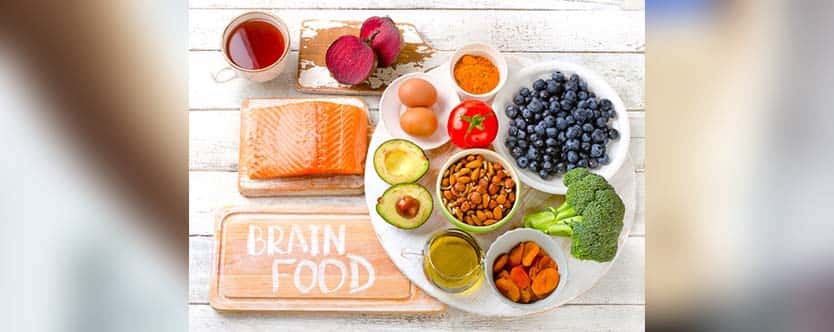The vitamin B family is made up of eight vitamins-: B1 (thiamine), B2 (riboflavin), B3 (niacin), B5 (pantothenic acid),B6 (pyridoxine), B7 (biotin), B9 (folic acid), and B12 (cobalamin).
[the_ad id=”6214″] These vitamins help produce energy from the food you consume, helping you stay energized throughout the day. Each of the B vitamins is important for your body to function properly. Found naturally in cheese, milk, poultry, eggs and fish, B complex vitamins can help deal with a lot of health conditions such as heart disease, depression, anxiety etc. They can also stimulate the immune system, boost hair and skin health, improve memory, enhance mood and increase energy levels.
B Vitamins are necessary for proper functioning of the brain too. Vitamin B6, B9 and B12 are used in delaying the onset of Alzheimer’s and cognitive decline.
Vitamin B6, Pyridoxine, helps form red blood cells and helps the body to maintain a healthy nervous system. It metabolizes glycogen and amino acids and increases the formation of red blood cells. It is found in egg, meat, bananas, poultry, spinach, fortified cereal grains, and fish.
Vitamin B9, Folic Acid, plays an important role in the formation of red blood cells. It is also very important for the development of an infant’s nervous system. Thus, pregnant women are advised to consume food rich in folic acid to reduce the risk of having a baby with neural tube defects. Fortified orange juice, avocados, brewer’s yeast, dates, and beets are rich sources of Vitamin B9.
Vitamin B12, Cobalamin, is required for normal nervous system functioning, DNA synthesis, and the formation of red blood cells. Deficiency of vitamin B12 is suspected to drive symptoms such as sensation, impaired gait, multiple sclerosis, and dementia. The best sources of Vitamin B12 are eggs, chicken, milk and fish.
Other benefits of Vitamin B are:
Prevent brain disorders– High level of homocysteine levels can cause dementia, Alzheimer, and brain atrophy. Vitamin B helps reduce blood levels of Homocysteine.
Slow brain shrinkage– People who consume Vitamin B experience less brain shrinkage. Also, lower levels of Homocysteine that decrease the grey matter atrophy ultimately slows down the cognitive decline.
An all vegan diet puts you at risk of Vitamin B12 deficiency. So people following a vegan diet should opt for B12 supplements. Another thing to assess is if your body can sufficiently absorb the B12. It’s the largest vitamin molecule, and due to its large size, it’s difficult to absorb. Liver problems may also interfere with the absorption of B12 as most of the vitamin B12 is stored in the liver.
Apart from Vitamin B, Vitamin C and D are also important for proper functioning of the brain. Vitamin C improves the production of neurotransmitters like serotonin which acts as an anti-depressant. It also improves memory and IQ. A combination of Vitamin C and E reduces the risk of dementia by about 60%. Vitamin D has profound effects on the brain too. Vitamin D deficiency during pregnancy can affect the brain development of the foetus.
Cognitive decline, which means that your brain doesn’t function as well as it used to, is caused due to unhealthy lifestyle choices. Having a diet that is high in sugar, unhealthy fats and no nutrition can make your brain weak. Instead, you should consume brain foods like avocados, beets, blueberries, broccoli, coconut oil etc. They are rich in antioxidants, minerals and vitamins that help improve your brain health and protect against brain diseases.
Source:

